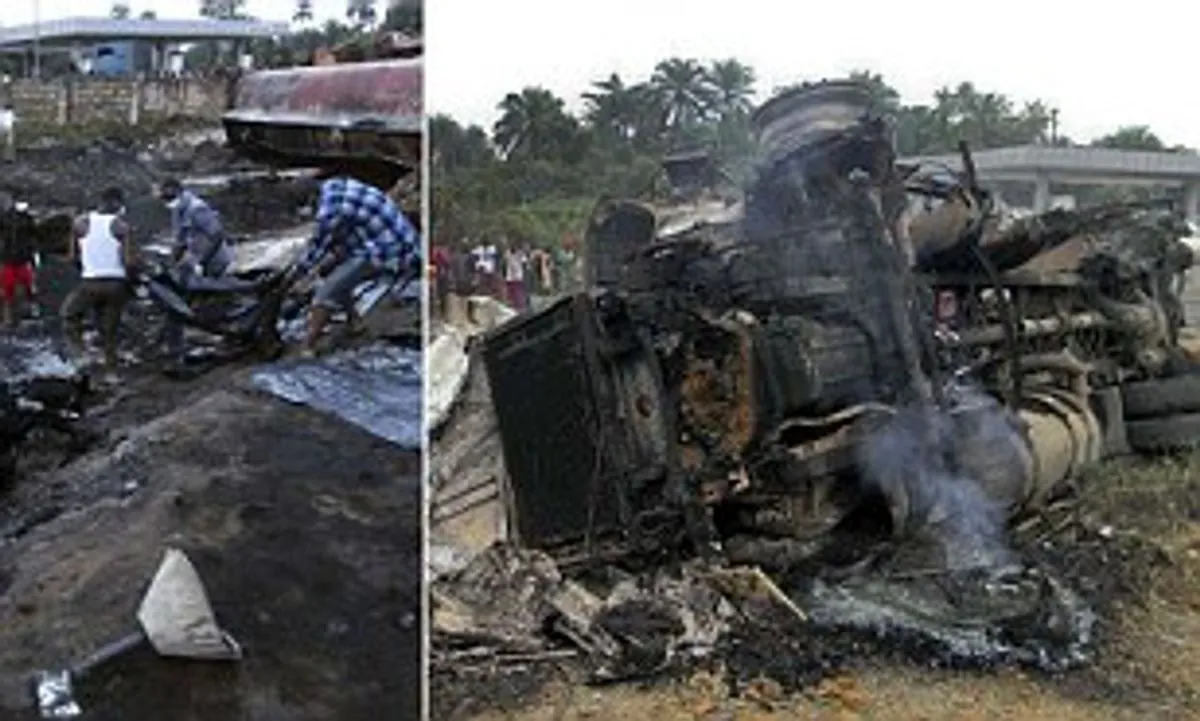Deadly Fuel Tanker Explosion Claims 48 Lives in Nigeria's Niger State
A catastrophic collision between a fuel tanker and a passenger truck in north-central Nigeria resulted in 48 fatalities. The incident occurred amidst recent fuel price hikes and persistent shortages across the country.

A devastating incident unfolded in Niger State, north-central Nigeria, on September 3, 2024, when a fuel tanker collided with a truck transporting passengers and livestock. The State Emergency Management Agency reported that at least 48 individuals lost their lives in the ensuing explosion, which involved multiple vehicles.
Hussaini Ibrahim, the agency's spokesperson, confirmed the death toll and stated that efforts to clear the accident scene were ongoing. This tragic event highlights the persistent challenges Nigeria faces in terms of road safety and fuel distribution.
Nigeria, Africa's largest oil producer with a population exceeding 200 million, has long grappled with fuel shortages despite its abundant oil resources. The country's struggle to maintain its four refineries at optimal capacity has led to a heavy reliance on imported refined petroleum products.

Just days before the accident, the Nigerian National Petroleum Corporation (NNPC) Ltd, established in 1977, implemented a significant 39% increase in gasoline prices. This price hike, the second major adjustment in over a year, has failed to alleviate the persistent fuel scarcity issues plaguing the nation. Consequently, motorists in major cities and towns across Nigeria continue to endure long queues at filling stations.
The recent tragedy in Niger State is not an isolated incident. Nigeria has one of the highest road fatality rates in Africa, with poor infrastructure, inadequate vehicle maintenance, and overcrowded roads contributing to frequent accidents. The country's history of deadly tanker explosions further underscores the need for improved road safety measures and stricter regulations in the transportation of hazardous materials.
As a member of the Organization of the Petroleum Exporting Countries (OPEC), Nigeria's economy heavily depends on oil exports. However, challenges such as oil theft, pipeline vandalism, and the contentious issue of fuel subsidies have complicated the nation's energy sector for decades.
The Niger State incident serves as a stark reminder of the urgent need for comprehensive reforms in Nigeria's transportation and energy sectors. As the country continues to grapple with these longstanding issues, the safety and well-being of its citizens remain at risk, emphasizing the importance of addressing these challenges promptly and effectively.


































